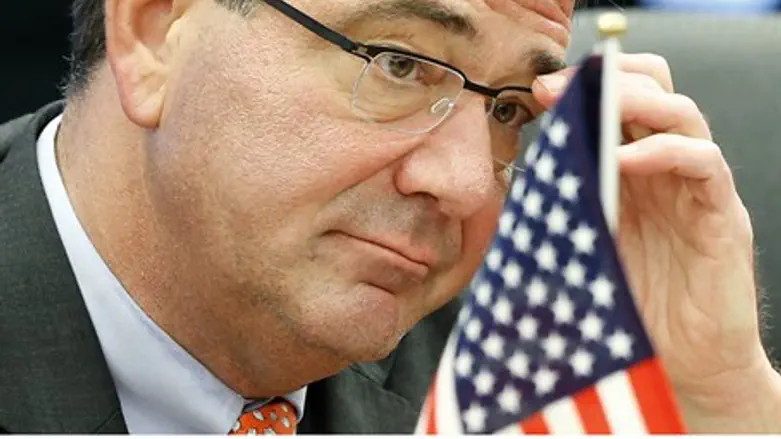
The presence of Iranian advisers in the Iraq battle for Tikrit is "concerning" to the United States, Secretary of Defense Ashton Carter said Wednesday, according to AFP.
The comments came as a mostly Shiite Iraqi force, including Iranian-backed militias, entered Tikrit after a 10-day push to enter the city in order to take it from the Islamic State (ISIS) terror group.
The presence of Iranian military advisers in that force "is something that is concerning to us in particular because the sectarian danger in Iraq is the principal thing that can unravel the campaign against ISIS," Carter said.
Iran backs a number of militias that are fighting the radical group which holds large swaths of Iraq and Syria.
The United States is also leading a coalition of forces in an air campaign against ISIS, and Carter emphasized that the battle against the group was not only led by Iran.
"There are actually several important battles going on, in some of which the Iranians play no role at all," Carter said, according to AFP.
Soldiers, police officers and militiamen took part in the campaign to retake Tikrit and entered parts of the city Wednesday and are still battling to control it. Tens of thousands of fighters are facing off with hundreds of jihadists, military sources said.
Former CIA chief Michael Hayden voiced similar concerns on Tuesday, when he said he was "uncomfortable" with Iran's growing influence in Iraq.
"I am made uncomfortable by the growing Iranian influence in Iraq. I am made uncomfortable by the fact that it looked like a Shia advance against a Sunni town," said Hayden, who headed the Central Intelligence Agency between 2006 and 2009.
"And the proof would be what happens if and when they retake Tikrit... How the militias act toward the local population," he added, during a roundtable on international intelligence sharing at the New America Foundation.
Hayden said the United States should not be sharing intelligence with the Iranians on Iraq, despite their shared desire to wipe out ISIS.
Iran has been involved in the fight against ISIS before, having bombed the group’s jihadists in eastern Iraq in late 2014, an attack which the Pentagon clarified was not coordinated with the United States.
The reports about Iran’s involvement in the airstrikes on ISIS come amid speculation of U.S. military cooperation with the Islamic regime, after Secretary of State John Kerry backtracked and said the U.S. couldn't rule out cooperation, and President Barack Obama secretly wrote to Iranian Supreme Leader Ayatollah Khamenei last year urging him to join the coalition against ISIS.
